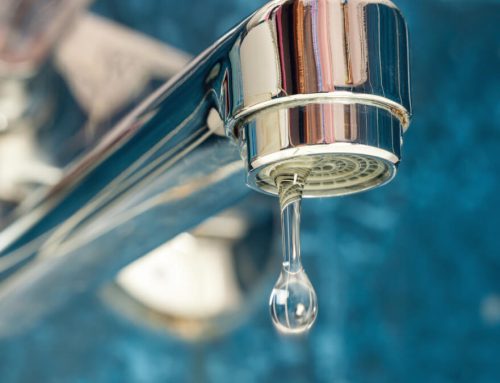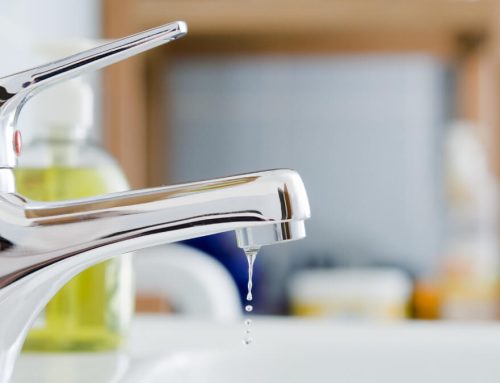How to Prevent Flood Damage, Leaks and Clogs

You rely on your home’s plumbing system to run smoothly, but hidden issues can hide everywhere. Luckily, you can stop clogs, leaking and water damage with a little preventive maintenance. Here’s how you can keep your water flowing and your stress in check.
Find and Stop Leaks of All Sizes
Most of your home system of plumbing pipes and fixtures is concealed, so water issues often go unseen until they cause major problems. Regularly checking for leaks can help you spot trouble before it gets worse. Here’s what to do:
- Check under the sink for signs of damp spots, wood rot or mildew.
- Keep an eye out for slow leaks in your toilet by putting in some drops of food coloring to the tank. If the color shows up in the bowl after 30 minutes without flushing, you’ve got a leak.
- Check around and behind your appliances, including the dishwasher or washing machine, for signs of water damage or leaking.
- Have a professional perform a water meter test.
- To get started, close off all water in your home via the home’s water main.
- Then, walk outside to check the water meter. Verify the reading again after two hours, and make sure not to use any water before the test is done.
- If the reading goes up, it means there’s a leak somewhere.
Utilize Mesh Strainers
A simple way to lower the risk of clogs is to place sink strainers over your laundry, kitchen and shower drains. They collect hair, pieces of soap, crusty toothpaste and other debris as water goes down the drain. Stick to a regular schedule when you clean these strainers to keep your drains running smoothly.
Be Aware of What Not to Flush
Toilets are designed to handle human waste and toilet paper. Here’s what you should never flush:
- Baby and/or wet wipes
- Paper towels
- Cotton swabs and cotton balls
- Feminine hygiene products
- Diapers
- Dental floss
- Old medication
Understand What Shouldn’t Be Rinsed
A lot of sinks in the kitchen may be equipped with a garbage disposal, but several things still belong in the trash can or compost heapp, rather than rinsed down the drain, including:
- Grease, oil and cooking fat
- Stringy foods like corn husks and celery
- Old food like boiled rice or coffee grounds
- Solid objects like gristle and bones
- Things that aren’t food. Silverware and other small items may end up in the disposal and cause damage when you turn it on.
Install a Sump Pump
Installing a sump pump helps prevent flooding, particularly in areas prone to high annual rainfall. This device removes water that gathers in something called the sump basin, usually found in the basement, and expels it away from the house. For homes that already have a sump pump, make sure it’s in good shape by dumping some water into the pit. If the pump activates and the pit drains, you’re good to go. If it doesn’t work properly, you have time to call a professional to fix the pump before another big thunderstorm rolls through.
Locate the Main Water Shutoff Valve
Being knowledgeable about your plumbing system means knowing how to find your main water shutoff valve. This valve controls water coming into your home, so knowing where it is means you can turn it off quickly in a plumbing emergency. It’s also wise to shut off this valve before going away for an extended period. Common locations for the main shutoff valve include the basement, near the water heater, in a utility closet or outside the home in the ground.
Prevent Your Pipes from Freezing
In colder climates, doing your part to protect your pipes is crucial to prevent freezing and bursting. Here is what you can do:
- Insulate pipes in purely functional/utility spaces like the basement, garage or attic with pipe insulation or heating tape.
- Unhook garden hoses from the spigots attached to your plumbing during the winter to prevent ice from forming inside the pipes.
- Keep under-sink cabinet doors open during freezing temperatures to allow warm air to circulate around the pipes.
Add a Backflow Valve
Another helpful plumbing tip is to set up a backflow valve in the basement floor drain to keep sewage from backing up into their homes after heavy rainfall. Local expert plumbers can fit this effective defense against sewage backflow.
Put in Flood Alarms
Just as smoke alarms are a big part of good fire safety, flood alarms are useful for preventing water damage. These wired or battery-operated devices detect water at the earliest stages of flooding or leaks, triggering an alarm to notify you. For further protection, connect smart flood alarms into your home security system. This sends a notification on your phone as soon as water is detected, allowing you to handle leaks before they cause significant damage.
Work with a Reliable Plumber
While you can take a wide variety preventive steps on your own to minimize the risk of clogs, leaks and flooding, it’s never a bad idea to have Expert local plumbers to keep things flowing smoothly. That’s where Crawford Services comes in. We work with some of the best plumbers offering residential plumbing support from coast to coast with service backed by a 100% satisfaction guarantee.
If you’re not completely thrilled with our services up to a year later, we promise to make it right. This commitment shows how we ensure a complete sense of comfort in your life. For professional local plumbing service that exceeds expectations, please contact us today.

